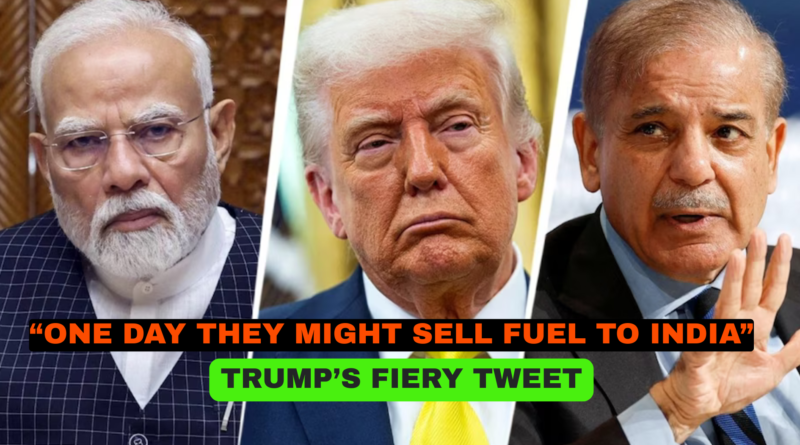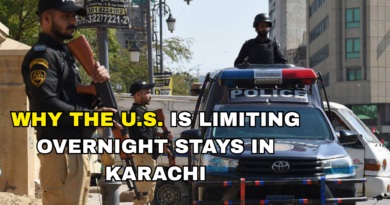ONE DAY THEY MIGHT SELL FUEL TO INDIA: TRUMP’S FIERY TWEET
In a dramatic and unexpected move, former U.S. President Donald Trump has announced a strategic collaboration with Pakistan that has sent shockwaves through diplomatic and business circles in India. The deal, focused on developing Pakistan’s untapped oil reserves, is being viewed as a geopolitical pivot by Trump, especially given his prior tough stance on India. His comments-laced with trademark bravado-have sparked intense speculation about the motivations behind this alliance.
Trump revealed the news via his social media platform, stating that a major U.S.-Pakistan deal was underway to harness oil reserves in Pakistan’s Balochistan region. The statement that “one day they might sell fuel to India” was interpreted by many as a veiled dig at India’s energy dependency. It also raised questions about Trump’s long-term vision in South Asia, a region he previously handled with unpredictable policy swings.
The former president has previously accused India of taking advantage of U.S. trade policies and even imposed a 25% tariff on Indian exports during his presidency. While Indian-American ties had seen both highs and lows during his tenure, Trump frequently used India as a rhetorical device in his domestic speeches, calling Prime Minister Modi a friend but never shying away from tough trade talk. This latest move seems to diverge further from those earlier friendly overtones.
Analysts suggest that Trump’s alignment with Pakistan may be a calculated strategy aimed at gaining economic leverage in the region. With China already investing heavily in the China-Pakistan Economic Corridor (CPEC), Trump’s intervention signals America’s interest in reclaiming lost influence in South Asia. By entering Pakistan’s oil and energy space, he positions himself as a counterforce to China’s growing regional dominance.
Indian diplomats are reportedly watching the developments closely, though no official statement has been made. The comment about potentially selling fuel to India has particularly irked strategic experts in New Delhi, who see it as a provocation aimed at testing India’s response. Given India’s current push for energy self-sufficiency and alternative fuels, such remarks could be more symbolic than practical but no less inflammatory.
Meanwhile, Pakistan’s leadership has welcomed the deal enthusiastically. In Islamabad, political leaders described the development as a “new chapter in U.S.-Pakistan economic relations.” They view Trump’s endorsement as a win for their energy ambitions and a chance to diversify international partnerships beyond China. The economic boost from U.S. investment could also provide much-needed relief to Pakistan’s struggling economy.
However, Trump’s sudden closeness with Pakistan has left many Americans puzzled too. Critics argue that his alignment contradicts his earlier hardline stance on nations accused of harboring extremism. While Trump is no longer in office, his continued global influence-especially among conservative and business communities-means his actions still carry weight on the international stage.
Indian business circles have expressed concern over potential shifts in regional energy trade dynamics. If the Pakistan oil sector begins expanding with U.S. backing, it could create new competition for Indian oil importers and refineries. Moreover, Trump’s comments may further complicate diplomatic ties between the U.S. and India, especially if other American politicians begin echoing his approach.
As the story unfolds, one thing is clear: Trump’s move has reignited old rivalries and opened a fresh chapter in South Asian geopolitics. Whether this alliance with Pakistan will bear economic fruit or just fuel political fire remains to be seen-but India will likely proceed with caution, watching both Trump and Islamabad closely in the coming months.




